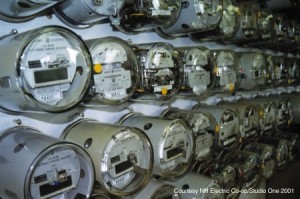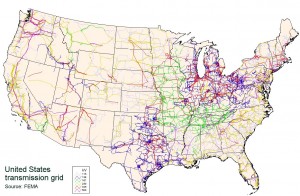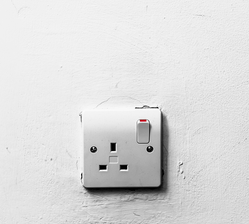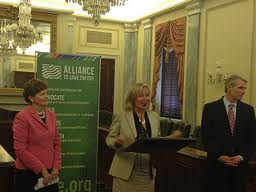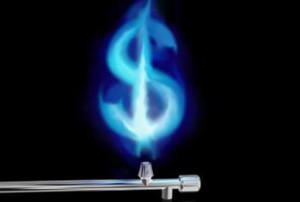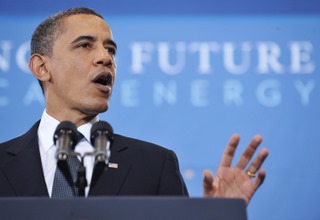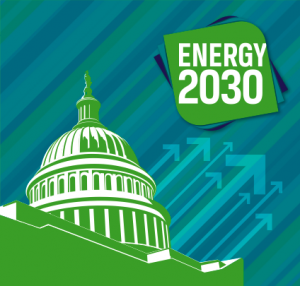60 item(s) were returned.
Senior Scientist
UFA Ventures, Inc.
Generally, when electricity demand rises in an area, we just fire up some source like a gas plant or a coal plant, or put more water through a hydroelectric dam, to produce more electricity to meet that demand. But what about other users voluntarily shifting their use to compensate for that rise in demand? This concept of Demand Response sounds simple, but until recent technological developments, like a smarter grid and rapid energy communication and control systems, it wasn’t feasible since the response time needed to be in minutes, not hours. Some users can shift their energy usage to different… [more]
View InsightExecutive Director
Pace Energy and Climate Center
This discussion is presented in conjunction with the closing keynote at the Association for Environmental Studies and Sciences 2014 Conference. Cost-effective and profitable energy efficiency technologies and services, and renewable energy generation alternatives are available today to end GHG emissions from the electric utility sector entirely. Traditional cost-of-service regulation rewards capital investments more than the provision of value, punishes innovation and efficiency, and treats customers as “ratepayers” with few choices and little clout. Today’s electric utilities are not well prepared to make the business model changes required to become truly sustainable. Three key strategies map a path forward. First, cost-of-service… [more]
View InsightOn April 30th, OurEnergyPolicy.org and The University of Texas at Austin co-hosted “American Perspectives on Energy Efficiency,” a panel discussion about energy efficiency at The National Press Club. The panel of thought-leaders provided insight into energy efficiency policy issues and explored the results of two recent sister surveys that reveal Americans’ and energy professionals’ perspectives on energy efficiency. Please see below for an abridged version of the transcript and a full video recording of the event. You can view or download the full transcript here. Opening remarks: Bill Squadron, President, OurEnergyPolicy.org Presentation of survey results: Sheril Kirshenbaum, Director of The… [more]
View InsightMember of the Faculty Emeritus
Evergreen State College
This is the first in a series of discussions led by invited speakers at the upcoming Physics of Sustainable Energy conference to be held March 8-9, 2014 at the University of California, Berkeley. Find more details below. At roughly 48% of US energy use, the environmental performance of the US building stock plays a large role in progress, or lack of it, toward sustainability. Improving our buildings has turned on having a believable standard for assessing how green a proposal is. Since its introduction in 1998, one such standard has been LEED (Leadership in Energy and Environmental Design), whose attractive… [more]
View InsightProfessor of Public Policy
Georgia Institute of Technology
Energy efficiency has been a lightning rod in the debate about the cost of addressing climate change, because it is generally seen as a least-cost approach to mitigating greenhouse gas emissions. But the mere mention of possible “negative costs” associated with energy efficiency is enough to send shock waves across the profession of neoclassical economics. Experts continue to disagree about the magnitude, cost and possibility of managing demand. Some say that the future potential for energy efficiency is limited because markets have already exploited all cost-effective opportunities, and there are insurmountable obstacles to further expansion. Demand-side resources may have played… [more]
View InsightSenior Vice President of Policy & Research
Alliance to Save Energy
Senators Jeanne Shaheen (D-N.H.) and Rob Portman (R-Ohio) recently reintroduced the Energy Savings and Industrial Competitiveness Act (ESICA), S. 761. This bipartisan legislation will spur the use of energy efficiency technologies across residential, commercial and industrial sectors, while fostering job creation. Energy efficiency is the best way to address our energy needs, increase the competitiveness of our businesses and create sustainable jobs. ESICA is supported by over 200 entities, from industry to environmentalists, ranging from Dow Chemical to the Sierra Club. This broad support illustrates the value of identifying points of consensus and how energy efficiency is such an area… [more]
View InsightProfessor of Public Policy
Georgia Institute of Technology
Thanks to breakthroughs in seismic imaging, horizontal drilling and hydraulic fracturing, the US in 2012 reduced its reliance on much dirtier coal by shifting to gas-fired power plants. This trend is expected to continue, spurred by low gas prices and increased regulation on coal. The move to shale gas is being heralded as a key to economic prosperity and a clean energy future. But there are other options for displacing baseload electricity from retired coal plants, the principals being nuclear, renewables and energy efficiency. Will the gas bonanza enable or postpone the transition to these cleaner options? While natural gas… [more]
View InsightAccording to The President’s energy blueprint, the Obama Administration is calling on Congress to establish a $2 billion Energy Security Trust to invest in breakthrough research into technologies, such as advanced electric vehicles, homegrown biofuels, fuel cells, and domestically produced natural gas. The funds would come from oil and gas royalty revenues generated from development in Federal waters off the Outer Continental Shelf (OCS). Other highlights of the blueprint include: Making the renewable energy Production Tax Credit permanent and refundable; A new $25 million prize for the first, natural gas combined cycle power plant to integrate carbon capture and storage;… [more]
View InsightA diverse coalition of energy leaders put together by the Alliance to Save Energy (ASE) recently unveiled a set of recommendations for “Doubling US Energy Productivity by 2030.” Chaired by Senator Mark Warner (D-Va.) and National Grid U.S. President Tom King, the Alliance Commission on National Energy Efficiency Policy calls for growing the U.S. economy through investments, modernization and education. The Commission’s goal of doubling U.S. energy productivity (GDP/Btu) by 2030 was alluded to by President Obama in the State of the Union as was one of the Commission’s recommendations, an energy productivity “race to the top” type program. ASE… [more]
View InsightLast week Senator Lisa Murkowski (R-AK), the senior Republican on the Senate Energy and Natural Resources Committee, published a blueprint for energy policy, titled “Energy 20/20: A Vision for America’s Energy Future.” The blueprint offers ideas to “align federal policy with… our national interest to make energy abundant, affordable, clean, diverse, and secure.” Among the main ideas in Sen. Murkowski’s blueprint are: Establishing a national goal to become independent of OPEC imports by 2020 by increasing domestic oil, biofuel and synthetic fuel production. Approving the Keystone XL pipeline. Opening the Arctic National Wildlife Refuge to oil and gas drilling and… [more]
View Insight